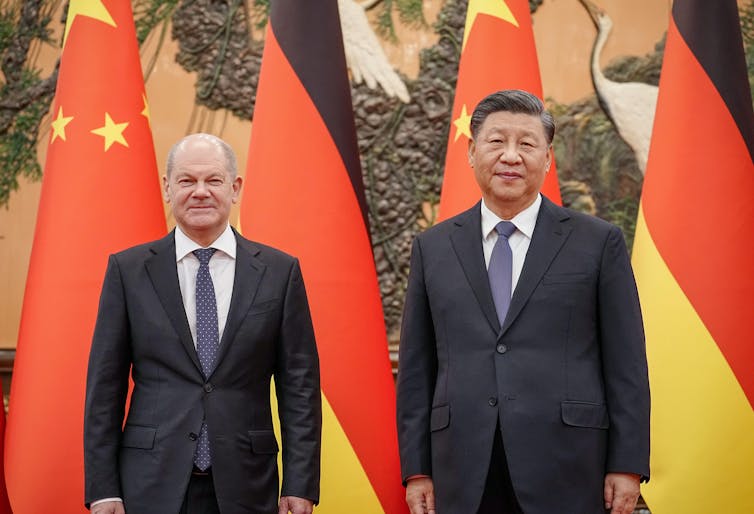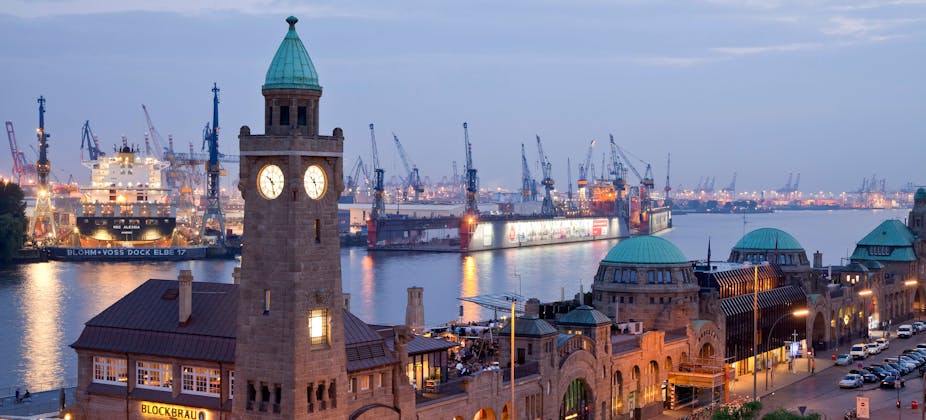The German government has become divided over a deal, agreed last month, which saw Chinese conglomerate Cosco invest in the Port of Hamburg. The deal had been in the works since September 2021 and was championed by the chancellor (and Hamburg’s former mayor), Olaf Scholz.
Scholz’s coalition partners have been vocal in criticising the deal. Chief among them is Robert Habeck, Greens member and Scholz’s economics minister, who expressed his fear that Germany was becoming dependent on Chinese business. Fellow Green and Scholz’s foreign minister, Annalena Baerbock, has also publicly briefed against Scholz and called for an entirely new China policy.
Even worse for Scholz is that his government’s concerns are shared by German business. One of the sector’s biggest lobbies has expressed anger over Germany’s economic relationship with China. In an attempt to ward off this anger, Scholz has been forced to publicly insist that Germany will not become reliant on Chinese business.
The prospect of dependency on an authoritarian power is a sensitive topic for the whole of Europe, not just Scholz’s government. Ever since Russia invaded Ukraine, Europe has been reckoning with the consequences of years of dependence on Russian primary imports, particularly gas. Russia has cut gas supplies from pipelines into Europe, stoking its energy crisis.
By leading on Europe’s energy policy, Germany has risked appearing a key enabler of this dependence. Scholz predecessor Angela Merkel signed a deal as recently as 2018 to build Nord Stream 2, a gas pipeline connecting Russia to Europe. This is why when criticising the Port of Hamburg deal, Habeck claimed the government needs to be “more careful” than in the past.
China’s threat
Underlying this criticism is a suspicion of China’s growing economic influence and the threat it may pose. In fact, Germany’s allies are already attempting to protect themselves against any perceived threats. This includes US president Joe Biden’s recent decision to limit semiconductor chip exports to China.
Meanwhile, China has been growing its influence in Europe through its ambitious Maritime Silk Road Initiative (MSRI). By strengthening Chinese trade links to Europe, the MSRI looks to cement China’s dominance in the shipping industry. Building on the work of companies like Cosco can help China consolidate its position as the world’s manufacturing hub.
With such influence, the question of whether China has potential leverage over Europe for its diplomatic, or military, interests arises. The EU even went as far to describe China as its “systemic rival” earlier this year. None of this helps the image of Scholz’s deal, which could be seen as facilitating the MSRI’s expansion.

A reality check
And yet, research shows there is little evidence to support the suspicion that greater Chinese investment in Europe means a greater security threat. This becomes clearer when taking a closer look at Germany and China’s deal in the port of Hamburg.
It is unclear whether Cosco’s motives for the investment are the same as those of the Chinese state. Despite holding the power to influence companies, the Chinese government often grants them free reign to compete with their global rivals. Being a multinational corporation, Cosco’s primary mission in Germany is to pursue profit, not undermine its security.
Rejecting Chinese business is a luxury neither Germany nor Europe can afford, despite what some politicians argue. Thanks to years of shrewd investments, Chinese investors own 10% of Europe’s port capacity today. Doing business with such a group is a reality not a choice.
And the potential benefits of the Hamburg deal can’t be ignored. Not only have the port’s operators strengthened their business relationship with Cosco, they have also staved off competition from neighbouring ports in Antwerp and Rotterdam, both of which service a great deal of Cosco’s European business.
It is also evident from the details of the deal that Chinese influence can be moderated. For instance, the agreed investment does not grant Cosco any managerial power in the port itself. In fact, Cosco has only gained a minority stake – 10% less than initially agreed – in just one of the port’s three container terminals.
Not only does this reflect the savvy of German business but also the government. Scholz’s junior coalition partners applied enough political pressure to have Cosco’s initial proposal for a 25% a stake in the port negotiated down.
Whether this can ease the government’s division, though, is another matter. That Scholz had to be strong-armed into a more modest deal reveals the extent of the pressure he faces. An uneasy truce appears to have emerged between the coalition partners but given the strong feelings on all sides, it seems unlikely this is the last time Scholz will be forced to account for his positions on China.

